Past Events

- Volodymyr Rafeyenko, Mark Andryczyk, Dominique Hoffman, Halyna Hryn
- Alphabet City 40 W. North Avenue, Pittsburgh,PA 15212
Three translations enter. One translation leaves. City of Asylum is back with its third official Translation Slam! The slam is a thrilling phenomenon in which renowned translators compete to see who can produce the best translation from the same source material. The source material is provided to the translators in advance, but the true battle of wits begins on stage at the slam, when the translators present and defend their work under the scrutiny of the author, the emcee, and the audience. The magic of the slam lies in the truth that literary translation is an art form—not an exact science. Interpretations of a singular text are plentiful, and no two translators will interact with a text in exactly the same way. In this program, City of Asylum Writer-in-Residence and University of Pittsburgh Research Scholar Volodymyr Rafeyenko has supplied a 600-word essay in Ukrainian, which has been shared with literary translators Mark Andryczyk (who has worked on several of Volodymyr’s literary projects), Dominique Hoffman, and Halyna Hryn (who will both take in Volodymyr’s work with fresh eyes). These experts in Ukrainian-to-English translation will prepare their interpretations ahead of time and then go head-to-head live at the slam, revealing their respective translations to the audience and to Volodymyr. At this point, our translators will defend their work under the scrutiny of the author, the audience, and our moderator, Rania Mamoun. Their defenses and discussion will cover differences in word choice, the influence of translation on reader interpretation, their translation process and reasoning, and what’s lost and gained in the art of translation. The slam will be followed by an audience Q&A. English/Ukrainian live interpretation will be provided by Myloslava Zavhorodnia. The event is free to attend both in person and via livestream.
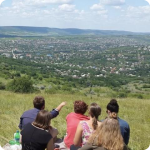
- Global Hub, Posvar Hall
Interested in studying, researching, or teaching abroad? Join American Councils for International Education to learn about opportunities across Eurasia, East Asia, and beyond. Programs emphasize advanced language study, area expertise, and cultural immersion.
Opportunities for faculty and undergraduate & graduate students:
- Explore summer, semester, and year-long options
- Learn about fellowship, scholarship, and financial aid opportunities
- Connect programs to UCIS global and area studies
Discover how you can build language skills, expand research, and engage globally with the support of Pitt's University Center for International Studies and American Councils.
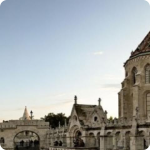
- Viktoria Batista
- Braun Room (12th Floor), Cathedral of Learning
Tuesdays, 4-5pm
Braun Room (12th Floor), Cathedral of Learning
Come to chat, practice, meet others who are interested in Hungarian and Hungary! All levels are welcome.
For more info, contact Dr. Viktoria Batista (vib21@pitt.edu)
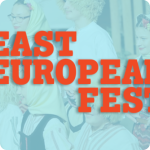
- Cathedral of Learning Commons Room
Don’t have a chance to travel during fall break? Join us to experience hospitality of the cultures of Eastern Europe and its surrounding regions through food, music and educational information! This event will bring together Pitt student organizations & academic units, the Nationality & Heritage Room committees, and other community members to learn about and celebrate the rich East European cultural history of the Pittsburgh region. The first 100 Pitt students with a Pitt ID can get a free treat from Jak’s Bakery and Steel City Chimneys! Co-Sponsors: NRIEP, Slavic Department, Summer Language Institute, Bosnian, Croatian, Serbian, Montenegrin Program; Hungarian Language Program; Modern Greek Language Program; Polish Language Program; Russian Language Program; Slovak Language Program; BCMS Club; Polish Culture Club; Russian Club; Slovak Club; Ukrainian Club; Pitt GEO; REEES; GOSECA Nationality and Heritage Room Committees: Czechoslovak, Hungarian, Romanian, and Yugoslav

- Brian Fairley (UCIS/REEES Postdoctoral Fellow)
- Baker Hall 246A, Carnegie Mellon University Soviet Georgian cultural history
This paper deals broadly with a history of music, technology, and changing ideas of race and ethnicity in the twentieth century. It focuses on Leningrad, where researchers in 1935 at the Institute of Anthropology, Archaeology, and Ethnography conducted recording experiments involving Georgian folk singers. Using the work of Maxim Gorky, Romain Rolland, and the hugely inflectional linguist Nikolai Marr, it shows how Georgian music inspired and challenged leading theories of language, nationality, and cultural evolution at a pivotal moment in Soviet history. Part of the Socialist Studies Seminar series.
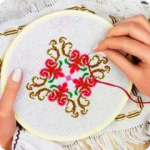
- Iryna Voloshyna
- Eurasian arts
This webinar will concentrate on UNESCO-recommended methodological strategies of including topics on traditional cultural heritage of Eastern Europe and Eurasia into the curricula, for courses spanning from language, arts, and geography, to mathematics and physics. Educators will come away with resources and strategies for integrating these themes into a variety of classroom settings. This webinar is the first in a six-part webinar series, The Arts of Eastern Europe and Eurasia, designed to support K-14 educators in bringing the vibrant and diverse artistic traditions of Russia, Eastern Europe, and Eurasia into the classroom. Each 90-minute session will spotlight a different art form—including music, dance, literature, visual arts, cultural artifacts, and theater/film—offering both historical and cultural context as well as practical classroom strategies.

- Andrew Romanchik
- Global Hub
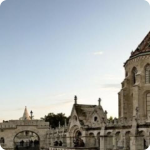
- Viktoria Batista
- Braun Room (12th Floor), Cathedral of Learning
Tuesdays, 4-5pm
Braun Room (12th Floor), Cathedral of Learning
Come to chat, practice, meet others who are interested in Hungarian and Hungary! All levels are welcome.
For more info, contact Dr. Viktoria Batista (vib21@pitt.edu)

- 4130 Posvar Hall
Victoria Harms, Associate Teaching Professor of History at Johns Hopkins University and author of the book The Making of Dissidents: Hungary’s Democratic Opposition and Its Western Friends, 1973-1998 (University of Pittsburgh Press, 2024) in conversation with Gregor Thum, Associate Professor of History at the University of Pittsburgh. Introduction by Kati R. Csoman, Director of the Nationality Rooms and Intercultural Exchange Programs. Co-sponsors to list are: Hungarian Room Committee of the Nationality Rooms and Intercultural Exchange Programs, the History Department, World History Center, European Studies Center, Russian, East European and Eurasian Studies. Where: 4130 Posvar Hall When: 4pm - 5pm October 6th What: Interview followed by a Q&A segment

- Pascale Laborier, Professor, University of Paris Nanterre
- Hillman Library (K. Leroy Irvis Room, Ground Floor)
Please join us on October 2nd at 3pm at Hillman Library (K. Leroy Irvis Room, Ground Floor) for the opening of the photo exhibition "Standing for Freedom: Portraits of Scientists in Exile". Meet the creator Professor Pascale Laborier and hear her talk about the project. The talk will explore both the conception of the exhibition and the broader context of academic exile: how the loss of academic freedom often signals democratic decline, and how hosting programs both preserve individual academic lives and sustain intellectual traditions under threat. Attendees will discover the photographic approach used in the exhibition, where each subject was invited to select personal and symbolic objects representing their home, host country, and research, lending depth and transparency to their stories. The presentation will reflect on the intersections of research, art, and advocacy in representing and supporting scholars at risk, underscoring the ongoing importance of international solidarity for academic freedom.
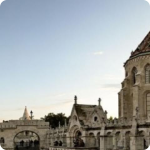
- Viktoria Batista
- Braun Room (12th Floor), Cathedral of Learning
Tuesdays, 4-5pm
Braun Room (12th Floor), Cathedral of Learning
Come to chat, practice, meet others who are interested in Hungarian and Hungary! All levels are welcome.
For more info, contact Dr. Viktoria Batista (vib21@pitt.edu)

- Katherine Zubovich (SUNY Buffalo)
- Baker Hall 246A, Carnegie Mellon University
After World War II, the USSR's leaders relied heavily on construction materials mined and produced in recently liberated territories to rebuild the country's ruined cities. This paper traces the material networks linking Soviet cities to forests, quarries, and factories supplying the wood, marble, brick, and cement integral to Soviet rebuilding. Focusing on the Aseri Brickworks and Kunda Cement Factory, both located along Estonia's northern coast, the paper examines the interplay between Soviet occupation and materials extraction. Part of the Socialist Studies Seminar series.

- Anna Kovalova
- 602 Cathedral of Learning
The Daydreams Database of pre-Soviet cinema (https://daydreams.museum/en/) is the first scholarly database of feature films produced in the Russian Empire and shot in its former territories in the first years after the October Revolution. Daydreams contains the most complete filmographies, synopses, and iconographic materials (such as promotional stills, posters, and frame enlargements) for more than 2,500 films with over 6,500 images and more than 200 film librettos.
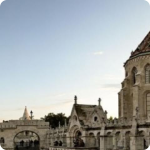
- Viktoria Batista
- Braun Room (12th Floor), Cathedral of Learning
Tuesdays, 4-5pm
Braun Room (12th Floor), Cathedral of Learning
Come to chat, practice, meet others who are interested in Hungarian and Hungary! All levels are welcome.
For more info, contact Dr. Viktoria Batista (vib21@pitt.edu)
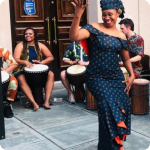
- Ground Floor, Posvar Hall
- 1 of 47
- next ›
